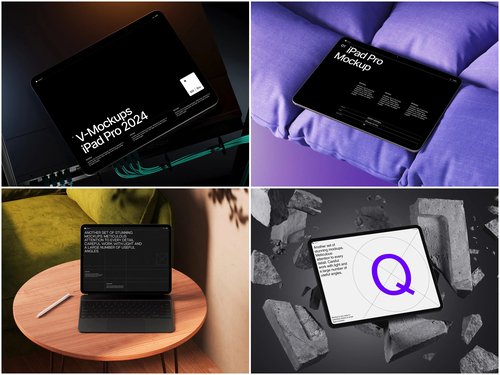
The Rise of Cloud Gaming
The landscape of mobile gaming is undergoing a significant transformation, largely driven by the rise of cloud gaming services. This innovative approach enables players to access high-quality games on their mobile devices without the necessity of having powerful hardware. By leveraging remote servers, cloud gaming allows users to stream games in real-time, thus circumventing the limitations traditionally associated with mobile gaming devices. As a result, gamers can enjoy a more extensive library of titles, including visually demanding games, on platforms that were previously constrained by hardware specifications.
The emergence of 5G technology has accelerated the adoption of cloud gaming, enhancing the overall user experience. With significantly reduced latency and improved bandwidth, 5G networks can support seamless streaming of high-definition games. This capability is crucial for cloud gaming, as it directly influences gameplay quality, response times, and visual fidelity. Gamers can now engage in demanding multiplayer experiences with minimal lag, making mobile gaming more appealing than ever. As such, the integration of 5G technology is poised to be a game-changer for the mobile gaming industry, fostering a greater appreciation for dynamic and immersive gaming experiences.
This trend not only benefits players but also presents new opportunities and challenges for game developers and publishers. Developers are encouraged to implement game design strategies focused on cloud capabilities, ensuring their titles are optimized for streaming. Furthermore, traditional gaming companies are adapting to this shift by exploring partnerships with cloud service providers or developing their platforms to maintain a competitive edge in the evolving market. Key players like Sony, Microsoft, and NVIDIA are investing heavily in cloud gaming, which underscores the importance of this trend. As mobile gaming continues to expand, the rise of cloud gaming will likely redefine how players engage with and experience their favorite games.
The Shift Towards Subscription Models
The mobile gaming industry is experiencing a significant transition from traditional one-time purchases to subscription models, fundamentally altering how consumers access and engage with games. This shift is primarily driven by the developers’ need for stable revenue streams and the increasing demand for diverse gaming content. In an evolving market where user preference can be unpredictable, subscription services provide a reliable income while enabling developers to continuously update and expand their offerings.
Subscription services such as Apple Arcade, Google Play Pass, and Xbox Game Pass have emerged as key players in this landscape. These platforms allow users to access an extensive library of games for a fixed monthly fee, fostering a sense of value that encourages long-term engagement. By offering a plethora of titles, developers can attract users who may have previously shied away due to high upfront costs associated with individual game purchases. This model not only simplifies the user acquisition process but also increases retention rates as players are more likely to explore various games within a subscription bundle.
However, this transition comes with both advantages and disadvantages. For gamers, subscription models provide a broader range of experiences and the opportunity to try new games without significant financial commitment. Conversely, some gamers may find themselves paying for a subscription even when they do not engage with the available titles frequently. For developers, while a subscription model promotes consistent revenue, it may also impose constraints on the game design process, as the need to create content that sustains user interest becomes paramount.
As the mobile gaming landscape continues to evolve, the shift toward subscription models represents a crucial trend that will influence how games are developed and consumed. Understanding this transition is essential for both gamers and developers to navigate the future of mobile gaming effectively.
Increased Focus on Augmented Reality (AR) and Virtual Reality (VR)
The mobile gaming landscape is undergoing a significant transformation, largely influenced by advancements in augmented reality (AR) and virtual reality (VR) technologies. AR games, exemplified by the remarkable success of Pokémon GO, have captured the imagination of millions, blending gameplay with real-world environments. By integrating digital elements into physical spaces, AR creates an engaging gaming experience that encourages players to explore their surroundings actively. This innovative approach has not only increased the popularity of mobile gaming but has also prompted developers to invest more resources into crafting immersive experiences that utilize AR capabilities.
On the other hand, the adoption of VR within mobile platforms has made strides, albeit at a somewhat slower pace. Recent developments in VR hardware have resulted in more portable and user-friendly devices, allowing gamers to dive into virtual worlds without the tether of traditional gaming systems. Mobile VR headsets are becoming more prevalent, and they come equipped with enhanced graphics and improved motion tracking technologies, significantly enhancing users’ experiences. However, challenges still persist, including concerns around comfort, battery life, and the need for more compelling software offerings to fully attract a broader audience.
Furthermore, both AR and VR are making substantial impacts on social gaming, as developers recognize the potential for community building through these technologies. Games that incorporate multiplayer elements within AR and VR allow users to connect in novel ways, facilitating real-time interactions in shared digital spaces. This evolution in mobile gaming not only fosters stronger player engagement but also has the potential to create thriving online communities. Developers must navigate these advancements carefully, ensuring that accessibility remains a primary consideration to reach a diverse audience. As both AR and VR continue to evolve, they are poised to reshape the future of mobile gaming significantly, leading to increasingly immersive and social experiences.
Sustainability and Ethical Considerations in Mobile Gaming
As the mobile gaming industry continues to evolve, there is an increasing awareness surrounding sustainability and ethical considerations that play a crucial role in shaping its future. Developers and gamers alike are advocating for eco-friendly practices, emphasizing a responsibility to minimize the environmental impact of gaming. The pursuit of sustainable practices includes the utilization of renewable resources, energy-efficient coding, and the commitment to reducing carbon footprints associated with game development and distribution.
Another significant aspect under scrutiny is the ethics of in-app purchases, a common monetization model in mobile gaming. Many players voice concerns about the potential for exploitation, particularly among younger audiences, leading to calls for transparency in pricing. Game developers are now challenged to create fair monetization strategies, ensuring users are well-informed and not disproportionately affected by aggressive marketing tactics. This emphasis on ethical considerations helps cultivate trust and loyalty among the gaming community.
Inclusive game design has also gained traction, reflecting a broader recognition of diversity in the gaming audience. It is critical that mobile games represent various demographics, cultures, and identities to create a sense of belonging for all players. The industry is responding to consumer demands for more inclusive practices, promoting games that feature diverse characters and storylines, which allows for richer narratives and heightened engagement. Furthermore, accessibility in mobile gaming is becoming increasingly pivotal, with efforts to accommodate players with disabilities, ensuring that everyone has the opportunity to participate in this dynamic form of entertainment.
In addressing these sustainability and ethical considerations, the mobile gaming industry not only enhances its reputation but also contributes positively to societal values. As developers adapt to the evolving landscape and the desires of conscious consumers, it is evident that the future of mobile gaming will be significantly shaped by these pressing issues.




